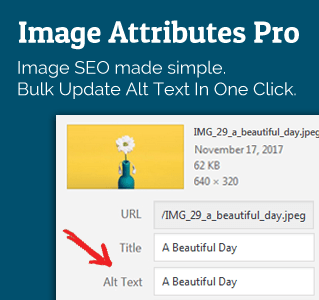A guest post by Erick Smith. If you wish to write one, check out the guest-posting guidelines and details.
Old forms of media and advertising are out and free marketing is in, which is definitely good news for any business with an online presence, or for any company looking to create one.
Social media and online videos are two ways to improve your company’s online presence through search engine marketing (SEM). And combining these two forms of online marketing creates an opportunity to further optimize search benefits while establishing your company as an authority in its industry, two forefronts of SEM.

Social media can be considered any form of internet media that requires user participation. The very heart of social media is that it demands and depends on user-generated content, which—and this is the great news for businesses—consumers consider more trustworthy than an advertisement or marketing campaign directly promoting a company’s goods and services. Consider the following:
- Consumers trust the opinions of people who are just like them—in other words, other consumers—and ratings and reviews are the third most trusted source of marketing.
- Consumers trust information provided by industry experts.
- However, consumers distrust overt marketing campaigns making unfounded claims like “our company is the best.”
- Nearly 75 percent of North American Internet searchers will click on organic search engine results before a sponsored link (a paid advertisement).
Social media gives businesses a unique opportunity to simultaneously create the two types of content that consumers like to trust the most: content created by other consumers, and authoritative content created by industry experts. Your business is an authority in its industry, and the trick is to show your potential customers that you know your stuff by offering them free, useful information, rather than simply telling them you’re an expert. Showing consumers that you’re an authority creates a relationship of trust that makes them more likely to purchase from your company. There are companies now that help generate a custom CRM package to help track your social media efforts.
How can social media do all this? Due to its interactive nature and dependency on user-generated content, the different forms of social media allow you, the expert, to publish content related to your field. Hopefully you’ve published content that your audience will find useful and applicable in their lives, for example, by offering them information that helps them solve a problem they are looking for an immediate answer to.
If you give good advice, a consumer will regard you as an industry expert, making them more likely to click through to your website to look around for more, possibly making a purchase. The same consumer may leave some feedback about the content you’ve published for other users to see. Or they may share your content with friends or colleagues who are looking for answers to the same problem. Of course, the content you’ve published includes a link to your website.
Some of the different forms of social media include anything from blogs to wikis, user ratings, social bookmarking sites like Digg and StumbleUpon, and social media blogs like Facebook and Twitter. Video is another form of social media—and YouTube is considered a social media site as well due to its interactive nature—but video is both inherently social media and extremely compatible with other forms of social media.
In fact, video may be the ultimate form of social media because it covers so many of the bases necessary for sufficient search engine marketing. Videos reach a broad audience, promote sharing and interaction, and drive traffic to your website. For example:
- Your business can publish videos offering free, authoritative industry content that can be embedded in your own blog or website as well as shared in a variety of social forums online.
- Viewers can comment on your video, providing the user-generated ratings that other consumers love.
- Viewers who really love your video will bookmark it on Digg and share it with their friends and colleagues on Facebook by posting the video to their own profiles.
And the snowball effect takes over from here.
So as you can see, video, a useful tool for social media services in itself, is highly compatible with many other forms of social media your company may already be using in its online marketing campaign.
In addition, you can search engine optimize your videos the same way you would optimize written content, and videos are already more likely to receive an organic search ranking than traditional text. Or, just hire an online marketing company to manage your videos in your social media campaigns. Since video is an inexpensive, permanent, and user-friendly form of self-publishing (and getting easier all the time), it makes a lot of sense to create, publish, and share videos, and then sit back while your friends, customers, and potential clients promote your video (and business) for you, for free.
The Author, Erick D. Smith lives in San Diego and blogs about Social Media and Web Marketing. Improving your site’s Social Media approach is a great way to bring new viewers to your site without relying on search engines to generate traffic.






Videos are very vital tool for blog promoting and optimization, though they make your blog load slowly hence i don’t use videos.
The latest technologies load videos after the whole of the page is loaded, so I dont think that is an issue.
adding video content always good for seo too,
i think it will improve time spending factor on particular blog